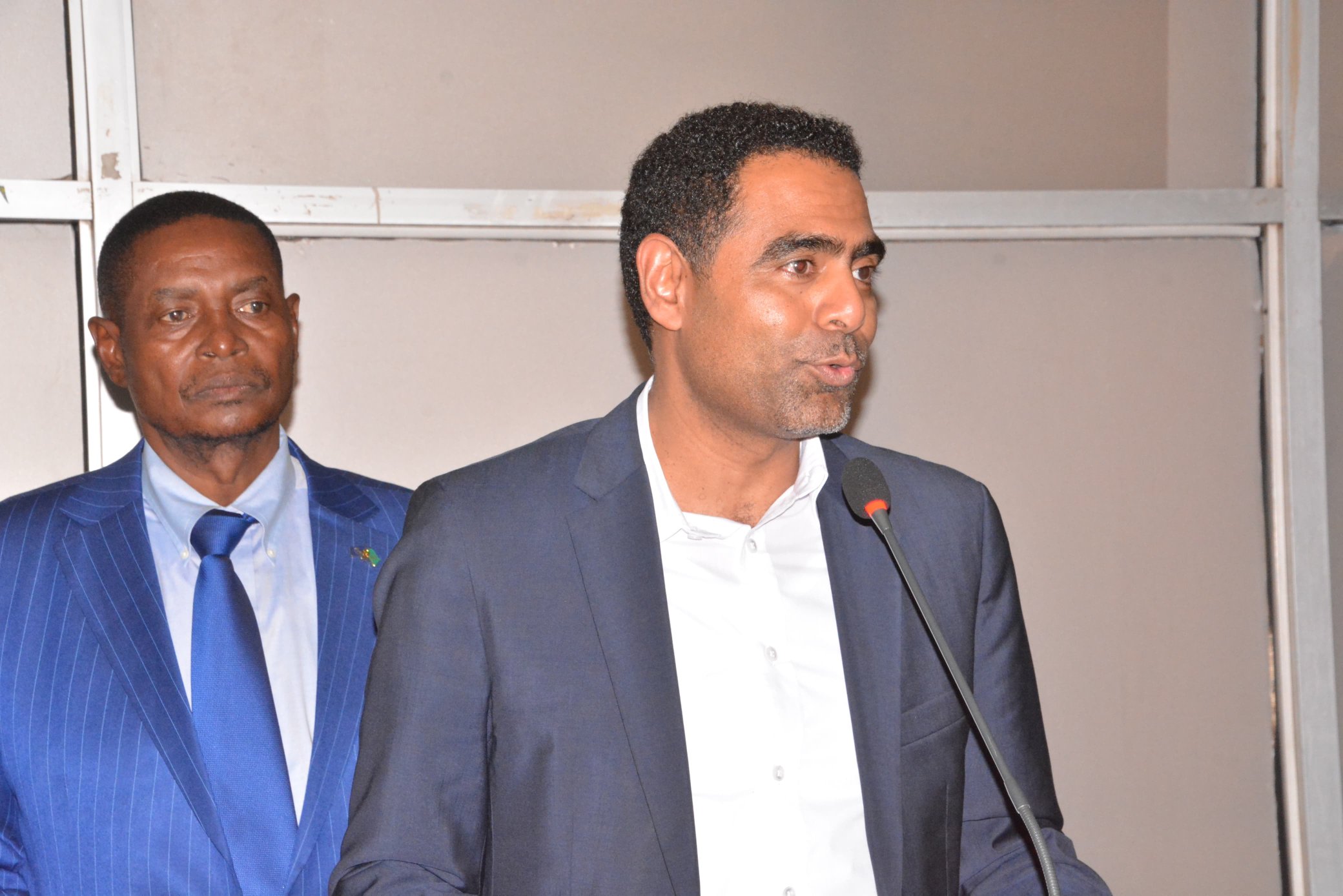Demystify math by teaching it in mother tongue

In 2007, I joined a German class because it was a pre-requisite for my studies and learnt first-hand how confusing and frustrating it can be to learn a language in that language.
Twelve of us with different language backgrounds had been put together in a classroom and taught German in German.
Each day, the teacher progressed through the lesson as if it did not matter whether we learnt or not.
On the very first day, we suffered the humiliation of being dragged out of our seats to go for break because we had not learnt a word!
The following day, she had been very upset that none of us did the homework she had given us. We had no idea we had been given homework.
Fast forward to 2016, into Kingdom of Saudi Arabia where I taught English to speakers of Arabic.
Before my first lesson, the faculty dean had instructed me to speak only in English with my students and reminded me not to translate any word into another language.
I complied fully because I don’t speak a word of Arabic anyway. But I could relate to frustrated looks in my student’s eyes of because I had experienced the same years back in Germany.
Nothing humiliates like having to learn in a language you have no functional knowledge in.
Few children around the world are as resilient as the African child. Unlike German, English, Chinese, French, Portuguese, Arab or Spanish children, many Africans have to learn in a language different from their mother tongue in school.
When you learn in a language other than your mother tongue, you have lifelong comprehension issues to deal with. In fact, sometimes you have to figure out several translation layers in your mind before you make sense of anything.
My Arab students had been lucky because they learnt only English in English, but learnt all other subjects in Arabic, which is their mother tongue.
Language is part and parcel of the ability to comprehend or understand something. This is why our success in school subjects is determined by how much content we can understand in a given area of knowledge.
So much embedded is language into learning that testing sometimes yields ambiguous outcomes, owing to the hidden hand of language.
When we test “composition writing in English” our interest is both in the language and composition skills.
When we test Geography, we are going after geographical knowledge which the teacher or books make available in a language.
Language proficient learners therefore stand a chance to score better grades.
But the story is totally different when it comes to mathematics. If math is “difficult” enough due to its specialised system of communicating abstract logical ideas by means of symbols and with precision and unambiguity, how much more difficult would it be for someone who has to teach math in a language they can barely express themselves in; or for the poor student who suffers the frustration of learning math taught in a language they don’t understand?
If testing in education assumes that a student’s score accurately reflects their mastery of a particular content area, what do we make of the African student taught math in an unfamiliar language and flops the math test?
How do we know if the flop is due to poor knowledge in math content or limited proficiency in English, Portuguese, French or whatever medium of instruction?
An important distinction must be made between knowing a language and knowing a subject.
Between 1969 and 1976 in Nigeria, a seminal project going by the name “The Ife Six Year Primary Project” sought to establish who between children who learnt school subjects in their Yoruba mother tongue and those that learnt in English posted better grades.
After the six-year period, the experimental group taught in Yoruba scored better grades than the one taught in English.
There are many advantages of using mother tongue in education. Mother tongue makes comprehension easy, makes education accessible to more people, makes learning less frustrating, and has the potential of demystifying math.
— The writer is a senior lecturer, department of Linguistics and Literature, Jaramogi Oginga Odinga University of Science and Technology










